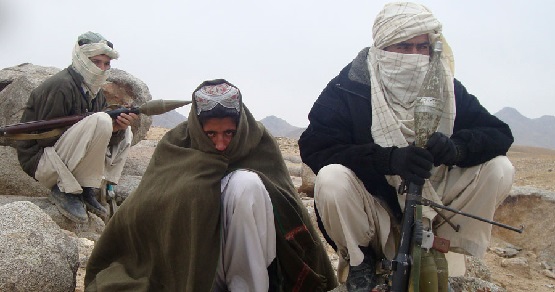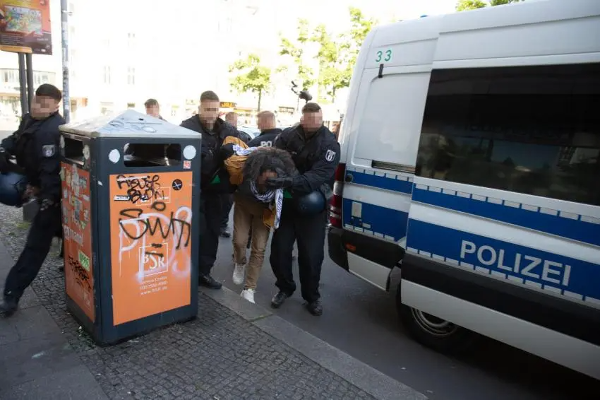The world's perception of Taliban movement is mixed with a picture of armed men and a brutal sociopolitical institution that grows in its head a comprehensive military campaign. But this image from Taliban is only partly true about the militant group. In fact, a comprehensive understanding of Taliban requires an analysis of Soviet occupation of Afghanistan in the 1980s, the post-Soviet period, experiencing life under Islamic traditions, Afghan language and ethnicity, the nation's tribal system, foreign interventions on common borders with Pakistan, and the social atmosphere in which Taliban grew up.
At the heels of withdrawal of the Soviet Red Army from Afghanistan in 1989, deadly infighting erupted among the anti-Soviet militant groups, making them consume their strength in the clashes. Killing thousands of people of the country and devastating the country's infrastructures, the clashes heated up to a new stage after April 1992, the time of fall of capital, Kabul. Fed by huge weapons depots that were left behind from Soviet occupation, the battles sparked between the Afghan Pashtuns and the Islamic Movement of Tajikistan, a militant organization active across the Central Asia. The outcome was disastrous, not less destructive than impacts of the Soviet occupation of the country.
Eyeing building a tribal system-based Islamic state to terminate the domestic fighting among the so-called mujahedeen and extend the security across the country, Taliban militant group took the initiative in 1994. Backed by the Pakistani air cover and the Inter-Services Intelligence (ISI), the Taliban managed to deal a working blow to the energy of the Tajik- and northern- fighters in the capital. Kabul was finally seized by Taliban in September 1996, and saw relative calm under the militant group's rule.
Taliban blamed the ongoing war, insecurity, as well as discrimination against the Pashtuns on the Tajik groups. When Taliban fully dominated Afghanistan, the country was turned into a center for training extremist Islamist forces and other radical fundamentalist groups around the West and Central Asia. Taliban introduced itself as a new force working to bring peace and stability to the Afghans, particularly the Pashtuns. It was quick in targeting many military chiefs in the country whom it blamed for devastation, instability, and chaos during the civil war. The new Kabul rulers also formed a religious police force to "promote virtues and prevent vices."
Following 9/11 attacks, many Islamic groups across West and South Asia suffered from crackdown launched by their governments at the behest of the US government. Tough conditions pushed them to head to the Afghan fronts, where they could retaliate against the Western occupiers for their plights in their own countries, though they needed a couple of years for their new strategy to ripen. Being repressed in their own countries, the multinational militant groups sought a safe haven to save their life there. The suitable place was tribal regions in Afghanistan's south and Pakistan's north, where the government's control was slight, and for hundreds of years the tribes administered their affairs autonomously without strong presence of government.
Meanwhile, Taliban and al-Qaeda's tactical retreat at the time of US and NATO invasion of the country built the ground for them to penetrate the tribal areas. Encouraged by a will for own interests, the Pakistani government facilitated arrival of these militant groups to its tribal areas. The Central Taliban Council, al-Qaeda, and the Pakistan-based Lashkar-e-Taiba, thus, provided safe shelters in Pakistan's Waziristan tribal area in solidarity with the Pashtun tribes. They finalized a new strategy: jihad in different conditions and atmosphere from the past. Fight against Kabul government started, and instability and crisis ensued. The battle has gone on for several years without any of them able to claim full victory over the other.
Along with Taliban's power gain widespread insecurity rose to be main challenge of Afghanistan, along with already-heated political and sectarian struggles in the country. Taliban's harsh approach brought forth for the country a period of chaos and political, economic, and social collapse. Afghanistan, as a result of Taliban's approach, turned into a safe haven for the takfir and salafi groups like a-Qaeda and also a threatening point for the region and even the world.
The September 2001 attacks in the US and the consequent American-led Western military invasion of Afghanistan to obliterate Taliban sank Afghanistan into a renewed period of war and bloodshed. Many Afghans were displaced, abandoning the country to the neighboring countries, creating a refugee crisis that prevails up to the present time.
But the Western campaign failed to destroy Taliban. The militant group's leaders fled and took shelter in mountainous regions on Afghanistan-Pakistan borders, allowing the war to continue to date with the foreign forces as well as the immature Afghan security forces and army that has led to spread of poverty, unemployment, and drugs smuggling. In fact, different Taliban wars with the government forces presented the group as a top destabilizing factor in Afghanistan.
LINK: https://www.ansarpress.com/english/5653
TAGS:































 Violation of the sovereignty and rights of afghan citizens by America
Violation of the sovereignty and rights of afghan citizens by America




